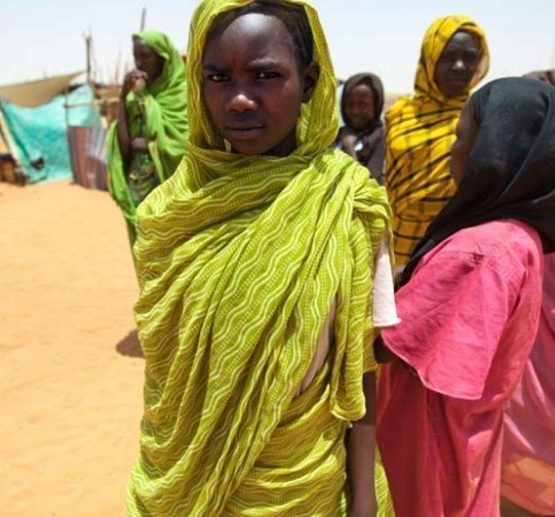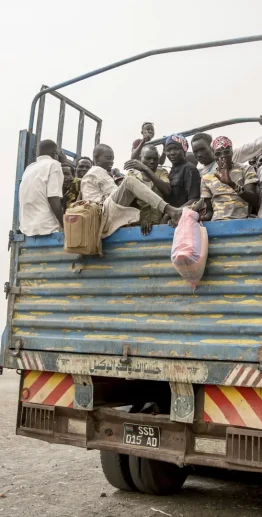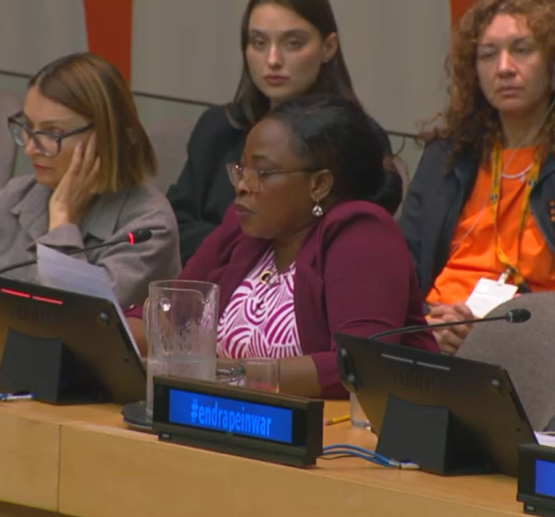On Monday, December 14, it was announced that Sudan had been formally removed from the United States list of states that sponsor terrorism (SST), following several years of negotiations between the Trump administration and Sudan’s interim government. Darfur Women Action Group (DWAG) welcomes the removal of Sudan from the SST list but seeks to remind all policy-makers involved in this decision that Sudan as a country must not grant impunity to individuals responsible for these heinous crimes and other crimes committed in Sudan before they can be individually held accountable.
Sudanese SST designation dates back to 1993, when then-US President Bill Clinton classified Sudan’s government, led by former President Omar al-Bashir, as a sponsor of international terrorism. This was preceded by Sudan inviting and hosting global and regional terrorists including Osama Bin Laden. Consequently, Sudan remained on this list for 27 years, even after al-Bashir was ousted from power in 2019, which caused the interim government of Sudan to struggle to access foreign financing and debt relief. Back in 2018, the Trump administration began reviewing whether Sudan now met certain criteria regarding leadership, policies and human rights that would allow for its removal from the list. On Monday, December 21, the US Congress passed the “Sudan Claims Resolution Act,” which prevents future US terrorism lawsuits against Sudan and allocates funding for humanitarian and debt relief.
It is worth noting that while the US races to normalize its relationship with Sudan, there are millions of genocide victims in Darfur who are still being held hostage in displacement and refugee camps and have not found the safety or security to return home. Additionally, criminals have yet to answer for their past and ongoing gross human rights abuses. We fear that this policy decision will allow genocide perpetrators to remain at-large and for the continuation of glaring human rights violations by Sudanese forces unless there are clear benchmarks put in place. The US must be careful not enable the interim government of Sudan to turn away from bringing perpetrators of genocide in Darfur to justice.
The interim government still holds a responsibility to the people of Sudan to bring long-overdue accountability for terrorism in Darfur, and hold perpetrators accountable for their horrific crimes including systematic mass rapes, killings and chemical warfare. The United States must take immediate action to put conditions in place that will hold the current interim government and former regime accountable for these crimes in Darfur. We are extremely worried that the US is trading in responding to the suffering of people in Darfur and other conflict areas with its own political interests.
It is also extremely concerning that US Secretary of State Mike Pompeo continues to refer to Sudan’s current interim government as “civilian-led,” when that has not yet been achieved. Known perpetrators of war crimes still hold positions in the current transitional government of Sudan, and al-Bashir and other wanted criminals have not been handed over to the ICC for prosecution. Also alarming is the exit of UNAMID peacekeeping troops from Darfur, after which civilian protection responsibilities now fall on government forces known to still be perpetuating violence against displaced people. To be clear, Sudan’s civilian-led era remains an aspiration and not yet a reality.
While we at DWAG recognize the importance of rewarding positive developments and reforms in Sudan, we want to stress that this policy must not solely compensate American victims of terrorism. As part of the Trump administration’s deal, Sudan will pay $335 million to victims of the 1998 al-Qaida bombings of US Embassies in Kenya and Tanzania and the 2000 attack on the USS Cole. We at DWAG firmly believe that justice cannot be exclusive and must be brought to all victims of terrorism, whether they are American or Sudanese. There must be justice for Sudanese survivors who have fallen victim to government-led terrorism crimes in Darfur. The international community has too often turned a blind eye to the human suffering in Darfur, but as an organization we are committed to making voices on-the-ground heard today and everyday.
DWAG has been opposed to removing this terrorism designation because we feared it was too soon, given credible reporting of ongoing human rights violations in Dafur and across Sudan and the failure of the interim governmnt to hold responsible the individual officials involved in terrorist-related crimes. It has been less than two years since al-Bashir was removed from power, yet government forces continue to reign terror on displaced Darfuris. We were worried that lifting this designation would continue to perpetuate a culture of impunity for those who violate human rights. The people of Darfur have suffered unbearable trauma for nearly twenty years, and the United States must ensure that the interim government of Sudan puts sustainable measures in place to prevent future extremism and violence in Darfur and Sudan at-large.
We call on the US to work with its allies to fulfill the following demands:
- Ensure that Sudanese government officials involved in terrorism must not be granted impunity and must be brought to justice through terrorism court.
- Establish strong mechanisms for protection of human rights and verifiable measures to demonstrate progress across Sudan.
- Support accountability for the most of our crimes committed in Darfur through ICC and pressure Sudan to create the framework for long-term justice for gencoide victims and all Sudanese.
We urge our supporters to join us in calling on the US to fulfill our demands and ensure that accountability is prioritized at all levels of US engagement with Sudan. US-Sudan relations must be based on the promotion of the rule of law, protection of human rights and dignity of the Sudanese people, accountability for serious crimes, and alignment of Sudan’s political will with the aspirations of the people of Sudan. If there is any hope of sustainable peace in Sudan, we must collectively work to end the culture of impunity for those who perpetuate violence and comite the most heinous crimes against vulnerable communities.
Thank you,
Niemat Ahmadi
Founder & President of DWAG




